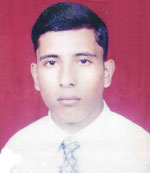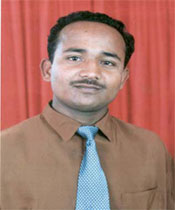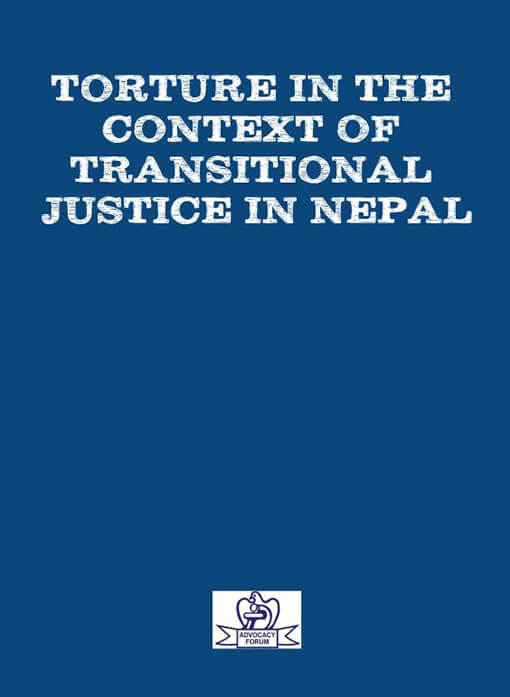Related Links
Case Updates
Krishna Adhikari
 On 6 June 2004, Krishna Prasad Adhikari, a resident of Fujel village of Gorkha District, was murdered in Chitwan District by Maoist cadres. Krishna Prasad was visiting his grandparents after having taken the SLC examinations, and he was abducted from Bakullahar Chowk by men who came on a motorcycle ...
On 6 June 2004, Krishna Prasad Adhikari, a resident of Fujel village of Gorkha District, was murdered in Chitwan District by Maoist cadres. Krishna Prasad was visiting his grandparents after having taken the SLC examinations, and he was abducted from Bakullahar Chowk by men who came on a motorcycle ... Maina Sunuwar
 Around 6 am on February 17, 2004, a group of RNA soldiers arrested Ms
Maina Sunuwar, a 15-year-old schoolgirl of Kharelthok VDC-6, Kavre
district. She disappeared since her arrest. Her family members, with
support from villagers and school where Maina was a student, visited
detention centers ...
Around 6 am on February 17, 2004, a group of RNA soldiers arrested Ms
Maina Sunuwar, a 15-year-old schoolgirl of Kharelthok VDC-6, Kavre
district. She disappeared since her arrest. Her family members, with
support from villagers and school where Maina was a student, visited
detention centers ... Sanjeev Kumar Karna
 Sanjeev Kumar Karna was one among the 11 persons arrested on October 8, 2003. On that fateful day, they had gone to attend a picnic program organized by the students at a place called Kariyachauri VDC-4, and from picnic, they went to Kataiya Chowri Area of Dhanusha district where they ate some food ...
Sanjeev Kumar Karna was one among the 11 persons arrested on October 8, 2003. On that fateful day, they had gone to attend a picnic program organized by the students at a place called Kariyachauri VDC-4, and from picnic, they went to Kataiya Chowri Area of Dhanusha district where they ate some food ... Arjun Bahadur Lama
Hari Prasad Bolakhe
Sarala Sapkota
Birendra Shah
Bishwanath Parajuli, Tom Nath Poudel and Dhan Bahadur Tamang
Chot Nath Ghimire and Shekhar Nath Ghimire
Bhauna Tharu
AF Launches Report on Torture (26 June 2023)

Unveiling the report on the occasion of the International Day in Support of Victims of Torture, AF has called on the Government of Nepal to amend the Transitional Justice (TJ) law to ensure effective remedies for victims of torture during Nepal’s armed conflict.
AF informs that it has documented 1,284 cases of torture, beatings, and mutilations with comparable gravity during the conflict inflicted by various actors, including the Nepal Army, Nepal Police, Armed Police Force, Maoists, and government-sponsored vigilante groups, known as ‘Village Defense Forces.’
These victims have been waiting for truth, justice and reparation for the last several years. The interim relief programme for ‘conflict victims’ rolled out by the then Government as early as 2008 also excluded victims of torture and sexual violence who need such relief the most, AF maintains. The organization claims that such discrimination continues to exist even today despite repeated promises by successive governments to address this.
The Transitional Justice-related law, the Enforced Disappearances Enquiry, Truth and Reconciliation Commission Act 2014 (TRC Act), also makes amnesty possible for those involved in torture and mutilation, even in cases of sexual violence. AF claims that successive governments have made some attempts to present a bill in the Parliament to amend the TRC Act but have failed to pass it while respecting the order of the Supreme Court and keeping the interest of the victims at its centre.
AF has called on the Government, parliamentarians, and all other actors to amend the TJ bill before it is passed by the parliament so victims are not denied the effective remedies they are entitled to under the Constitution and Nepal’s treaty obligations.
Some of the recommendations made by AF in its report on torture include:
- The parliamentary hearing committee and the sub-committee responsible for amending the TRC Bill must thoroughly scrutinize the identified inadequacies in the proposed Bill. The preliminary analysis and recommendation provided by victims and CSOs should serve as the basis for their scrutiny;
- The government must also prioritize the amendment of the TRC Act and the establishment of effective TJ mechanisms following the Supreme Court’s ruling and international human rights standards. Meaningful consultations with victims and civil society should guide the amendment process;
- The Government of Nepal must establish a robust and independent legal and institutional framework to ensure independent, impartial, and effective investigations into cases of torture during the conflict period;
- The NHRC should maintain a comprehensive record of the identities of perpetrators involved in human rights violations, including torture, and publish their names;
- The NHRC should actively monitor the implementation of the recommendations it makes in torture-related cases;
- The Government of Nepal should promptly implement the recommendations put forth by the UN Human Rights Committee.
























Join Us